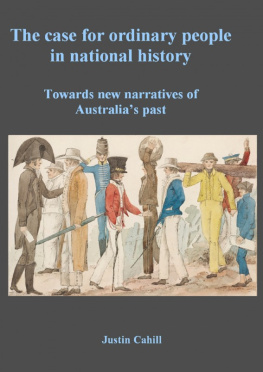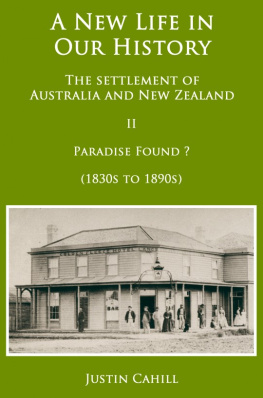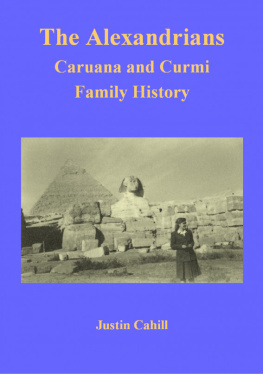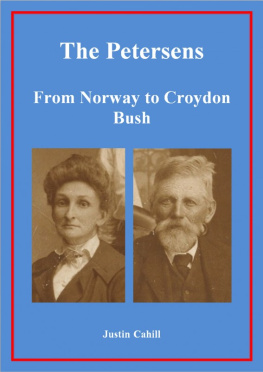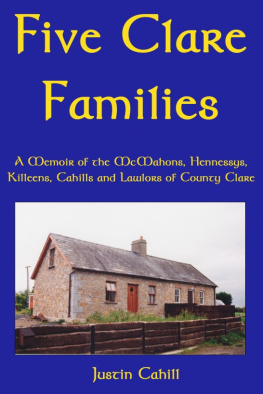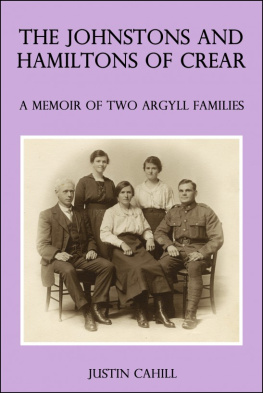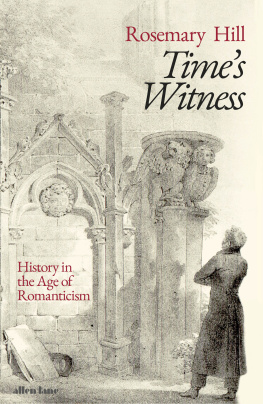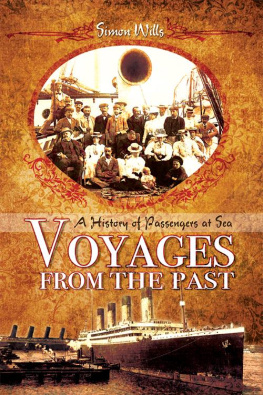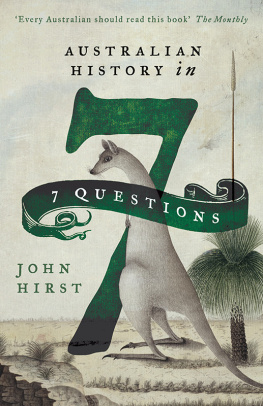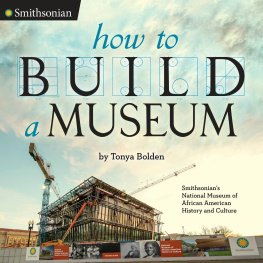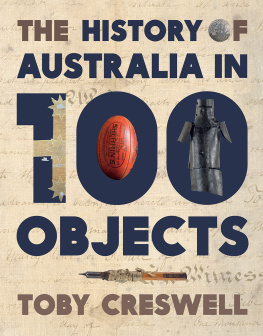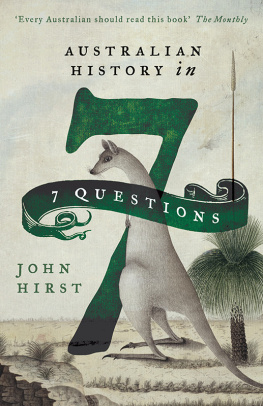The case forordinary people in national history
Towards newnarratives of Australias past
Smashwords Edition
Copyright 2015 Justin Cahill
Discover other titles byJustin Cahill at Smashwords.com
Please direct allinquiries to Justin Cahill at
PO Box 108, Lindfield, 2070
New South Wales, Australia
or e-mail tojpjc@ozemail.com.au
Remarks to the Canterburyand District Historical Society
27 January 2015
One of thevery great drawbacks of generalizing social-science history, withits reliance
on averages andstatistics, was its virtual elimination of the individual humanbeing in
favour ofanonymous groups and trends. To reduce every human being to astatistic, a social type,
or themouthpiece of a collective discourse is to do violence to thecomplexity of human
nature, socialcircumstances and cultural life .
- RichardEvans, In Defence ofHistory , Granta Books, London, 1997,p.189.
I never foundthe answer to the relationship between the characters in the frontof the stage and the backdrop. I was weak on backdrop. If I hadthe time over again I would try to do more, look more at theinterconnection between the material structure of society and thecharacters .
- Manning Clarkin Max Crawford, Manning Clark and Geoffrey Blainey, Making History ,
McPhee GribblePublishers Pty Ltd, Fitzroy and Penguin Books AustraliaLtd,
Ringwood, 1985,p.65.
Cover:Watercolour attributed to Edward Close entitled The Costumes of the Australasians ,painted between about 1817 and 1840. It is a rare contemporaryrecord of what ordinary people wore in early to mid-nineteenthcentury Sydney and an even rarer record of what convicts wore - theman dressed in yellow is a convict. Edwards Close, NSWSketchbook, Mitchell Library, PXA 1187.
Preface
We are allhere this evening as we are devoted to history. But when we readaccounts of Australias past, the views we are often presented arethose of governors and prime ministers, the clergy, wealthymerchants or celebrity criminals. We often get what DavidHainsworth called the Government House verandah point of view .
Ordinary people living their day-to-day lives are generallyabsent. When they are mentioned, their treatment is usuallycursory. They are passed over with bland generalisations or lumpedtogether and reduced to a broad series of social or economictrends. At best, they are described as public opinion. At worst, they are the mob or therabble.
This omission isdifficult to understand, especially in Australia - and New Zealand.Both countries resulted from unprecedented, largest-scale socialexperiments that involved hundreds of thousands of individuals fromall walks of life. A colony was established here for the specificpurpose of transporting convicts and sourcing timber and flax forthe Royal Navy. Other settlements were established in Adelaide andCanterbury under Wakefields theory of systematiccolonisation.
But while there are manybooks on the transportation of convicts to Botany Bay and theefforts to re-create English society in New Zealand, ordinarypeople are rarely included in the national history they helped tomake.
Why this hashappened is difficult to explain. There is no shortage of primary sources. They range from archaeological remains, survivingbuildings and structures and everyday artefacts to land and parishrecords, civil registration and census returns, shipping records,diaries, letters, newspapers, trial reports, petitions includedamong the Colonial Secretarys records, paintings, photographs andmemoirs and oral history recordings. These sources are readily available in archives, librariesand museums throughout Australia and New Zealand.
Many are freely available on-line. They include the Old Bailey transcripts and BruceKerchers early NSW law reports: both are jam-packed with detailsof the lives of ordinary people.
Some historians have used these sources to provide aninsight into the lives of convicts, traders or early settlers. Buttheir works focus on small groups involved in particular events orcover a short period of time. There is no full-length history of Australia or New Zealandfrom the perspective of people like us.
As theHistory Wars show, whether we can provide an accurate account ofthe past is subject to intense debate. I must show my hand - Ibelieve we can. I support a new approach to national history that Ithink provides a more accurate account of how it essentially was . Itcentres on telling national history from the perspective ofeveryday people.
Local and family historyboth have a key role in this approach as they deal with specificpeople and places, rather than abstract trends. So I amparticularly grateful for the opportunity to discuss it with youtoday.
My case for includingordinary people in natural history is in two parts. First, I setout the scope of this new genre, its subjects and how it may bepursued. Second, I discuss its utility. Myultimate hope is that this approach to national history willincrease popular interest in the past and cure the loss ofconfidence in traditional, empirical history that followed theWars.
I
Who are theordinary people I have in mind ? Augustin Thierry, a Frenchhistorian writing in 1820, described them as the most numerous and most forgotten class ofour nation . But to me, they are simply those who have not yetfeatured in our national history. As that is the majority ofpeople, they share very few characteristics. They do not belong toany particular cultural, social or economic group. I had thoughtabout defining them in terms of everyone not mentioned inthe Australian Dictionary ofBiography or the Dictionary of New Zealand Biography , but that would leave out too many interestingfigures.
There is agood case for telling national history from their perspective. AsEdward Thompson noted in his influential work Making of the English WorkingClass , they contributed by conscious efforts, tothe making of history . Even though theywere often affected by events beyond their control, we can stillrecognise them as individuals and appreciate their contributions tonational development. Previous histories of Australia and NewZealand have rarely done this.
While my work focuses onordinary people, it does not leave out the usual, more famoussubjects of national history. Omitting figures like GovernorMacquarie, John Macarthur or Sir George Grey would distort realityand remove familiar reference points. Plus many of the ordinarypeople who make up the main characters in my work interacted withthem. I simply take a broader view of who should be included innational history and attempt to present it from a differentperspective.
II
When I tell people aboutmy work, the most common response is ah, so youre writing asocial history. While my approach to national history does rely onsocial history, it is not the same. It is not a survey of howordinary people lived in the past. In other words, it is not anaccount of what they ate and drank, what their homes were like, theoccupations they followed, their amusements or sexual habits. Noris it local or family history, although they are also important tomy approach.
The difference between mywork and these other approaches to writing history becomes, I hope,clearer through a process of elimination.
GeorgeTrevelyan defined social history as the history of a people with the politics leftout ..., He explained that while [i]t is perhaps difficult toleave out the politics from the history of any people, particularlythe English people. But as so many history books have consisted ofpolitical annals with little reference to their social environment,a reversal of that method may have its uses to redress thebalance .
He went on todefine the scope of social history as the daily life of the inhabitants of the landing pastages: this includes the human as well as the economic relation ofdifferent classes to one another, the character of family andhousehold life, the conditions of labour and of leisure, theattitude of man to nature, the culture of each age as it arose outof these general conditions of life, and took ever-changing formsin religion, literature and music, architecture, learning andthought .
Next page
